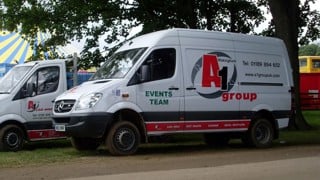Even experienced fleet managers can benefit from training to keep pace with industry developments. Andrew Ryan reports.
Mobility, technology, legislation… the pace of change in fleet is so rapid that any decision-maker who is unwilling (or unable) to stay on top of developments will soon be left behind.
This can seriously affect a company. For example, if policies are not continually updated to reflect changes in legislation, then a fleet could unknowingly be breaking the law.
Similarly, if fleets do not learn how to take advantage of technologies such as telematics or vehicle safety systems, then they risk missing out on significant savings as well as neglecting their duty of care responsibilities.
“We are all guilty at times of sitting back and saying ‘I know what goes on, I’ve been in the industry a long time’, but none of us are beyond getting educated in the modern way,” says Peter Eldridge (pictured below), director of training body ICFM.
“If you think about technology, autonomous vehicles, connected vehicles and big data, the pace of development of all those is doubling every two years, so how could any of us sit back and say ‘we don’t do training, we know what we’re doing’? It’s wrong, it’s completely flawed.”
Fortunately for fleet decision-makers, plenty of training opportunities and sources of information are available.

These include the trade press, such as Fleet News, networking events, conferences, membership and accreditation to organisations and initiatives such as fleet operators association ACFO and the Freight Transport Association (FTA) Van Excellence, as well as formal training and qualifications through ICFM.
The ICFM programmes have many benefits for fleet decision-makers, says Eldridge. It is the UK’s only independent not-for-profit organisation dedicated to furthering the education and advancing the profession of car and light commercial fleet management.
It also offers externally accredited vocational qualifications: Introductory Certificate in Fleet Management, Certificate in Fleet Management and the Diploma in Fleet Management.
“The fleet industry has gone through a significant change in that it isn’t just about fleet managers any more, you’ve now got a very different set of employees with fleet responsibility and that includes people from finance, HR procurement and travel,” Eldridge says.
“We don’t get a room full of fleet managers on our courses any more, we are getting equal splits of delegates from those specialisms so we’ve had to adapt our training to suit that.
“There has been a dilution of fleet management responsibility, and there has been a dilution in knowledge, expertise and skills, and that is why training is so important.”
Eldridge says another important part of ICFM membership is the networking opportunities it gives fleet decision-makers, allowing them to share experiences and learn from their peers.
“There is no better education than a life lesson. People sharing good and bad experiences is vital for this,” he says.
Georgina Smith, fleet manager of Healthcare at Home, earlier this year gained her ICFM Diploma in Fleet Management and beleives networking is an important part of the learning process.
“You can share experiences and you can ask questions of people if you’re not sure about something because not all fleets are the same and they do things differently,” she says. “On the ICFM course I was working with a lot of bluelight fleets which gives you a real insight into fleets of different sizes and shapes. How do they deal with fuel? How do they deal with risk, insurance and finance? How do they put all their information together?
“It’s great to know how people do that because otherwise we are all off in our own offices doing it on our own. There’s nothing like learning from first-hand real experiences.”
There are many opportunities for fleet decision-makers to network, whether it is by attending roundtables, conferences or seminars such as those operated by ACFO and road safety charity Brake.
Some fleet managers working for large companies may also be able to benefit from networking internally as well as externally.
Ann-Marie Dunbar (pictured below), fleet manager at Vodafone, is able to communicate with contacts abroad to seek best practice. For example, on mobility she works with her contacts in the Netherlands to understand solutions which may work for UK employees. The Dutch are viewed as being ahead of the UK on mobility.

She says: “I link into my Vodafone group counterparts, representing the UK at a global level and I am also out in the industry understanding the direction we are heading and the legislation coming our way,” she says.
“I try to network as much as possible with other fleet operators via our fleet provider and our other suppliers.”
Joining a leasing company’s user group meetings is a useful way to network with other fleet decision-makers, says John Pryor, chairman of ACFO, while suppliers can also be a source of information.
“If you’ve got a good leasing company which is responsive and proactive it will keep you informed of what is happening, but so much is finding out what other companies do as well,” he says.
However, with that “there’s always a certain amount of ‘am I being sold to here?’, and that’s fine, it’s okay to be a bit suspicious, but we’ve got to be certain that they are doing it for our benefit”, adds Smith.
“It’s great that our lease companies send us updates, but we need to make decisions for ourselves so we need to be properly informed and that’s where training comes in.”
As well as providing networking opportunities, there are a number of organisations which can provide fleet decision-makers with advice and guidance, all of which offer something different.
ACFO, for example, provides fleet management information and advice on a wide range of issues, while Brake focuses on road safety.
Its established Pledge initiative has become well used throughout the sector as it provides training and resources to help fleet managers educate drivers in journey planning and eco-driving, driver impairment through drink and/or drugs, passenger security, driver distraction, fitness to drive and speed.
Fleet managers who attend one of the regular Pledge training sessions are told how they can communicate these messages to drivers through methods such as interactive group workshops, one-to-one sessions with individual drivers, full day training, or in shorter sessions throughout the year.
Brake’s annual Road Safety week also provides information and a focus for fleet managers to raise awareness of relevant issues in their organisations.
Environmental advice is available from Energy Saving Trust which offers online self-service tools, best practice guides and case studies.
The Fleet Industry Advisory Group (FIAG) takes a different approach. It was founded in 2014 by a group of fleet managers with around 200 years’ experience between them with the aim of sharing advice with more inexperienced decision-makers.
“You can’t put an old head on young shoulders, but if you are approaching managing a fleet from a young perspective, most of the experiences you are going to come up against have been experienced before,” says Geoffrey Bray, chairman of FIAG.
“There are different ways of learning: there is no one-size-fits-all solution which works for everybody, but we feel that experienced fleet managers can become a source to learn from because they can pass their knowledge on to someone else. I do believe in the philosophy that in our industry everyone is serving an apprenticeship and it never ends. It is constant, we can all benefit from someone else’s experience.”
Organisations can also receive access to information and advice on best practice through accreditation schemes such as FTA Van Excellence or the Fleet Operators Recognition Scheme (FORS).
Achieving either of these means fleets have to operate to a required standard, looking at areas such as vehicle roadworthiness, safety, training and compliance.
It also has other benefits to a company. For example, an increasing number of companies are taking accreditations into account when awarding contracts.
“One of our biggest customers started asking us for FORS and others were following suit,” says Derek Golding, director of fleet operations at Ajax Couriers, which has achieved both FORS Bronze and Van Excellence accreditation.
“We decided these accreditations were best for the company, worked out what we needed to do to get them and put it into action.
“Accreditations are good because people see them on our vehicles and it makes us look more professional. It shows we are there for the customers.
“We’re not the cheapest company around, but they know they are going to get a quality service from us.
“Seeing accreditations reinforces that. They show we are serious about our work.”
It took Golding eight months to get the fleet FORS accredited, and then another six months for Van Excellence. He says renewing both will be simpler: for example, FORS took only a couple of weeks.
“My life is a lot easier now, everything is automated or has a set process,” he adds.
However, although there are plenty of opportunities for fleet decision-makers to learn, Bray says they need to take responsibility and make the most of them.
He adds: “It is important that fleet managers are not afraid to ask questions of other people or talk to other companies.
“You’d be amazed how people are willing to share that knowledge and that, for me, is an excellent way of developing a skill and a knowledge.”
On course for improved career prospects and greater confidence

Formal training can help fleet managers improve the operation of their fleet, but it can also improve their career prospects.
“We know for a fact that there are many organisations who use ICFM qualifications as their de facto standard of approval to appoint people,” says Peter Eldridge, director of the ICFM.
“We have seen a fair slice of that in the public sector and we know that if an applicant has the ICFM accreditation next to their name that does carry weight.”
This was certainly the case for Georgina Smith (pictured above), fleet manager of Healthcare at Home. “When my then fleet manager moved on (in 2014) I was promoted to fleet manager. But without completing the ICFM fast-track course that wouldn’t have been the case – they would have sourced somebody who had a similar qualification,” she says.
Smith started with Healthcare at Home in 2002 and became its fleet administrator in 2008.
“I was looking to improve myself. I didn’t know much about fleet but really wanted to become more professional in what I did because there were a lot of drivers relying on me,” she says.
This led Smith to take the ICFM’s introductory course, then the fast-track fleet management course.
Her studies culminated with her becoming a fellow of the ICFM earlier this year when she passed the diploma course with distinction.
“Training is very important to us here,” says Smith. “Having a qualification allows you to go to your employer and say ‘you know, I do know what I’m talking about’ and it helps the drivers to have a bit of trust in what I’m telling them to do.”
Smith’s employer fully supported her desire to undergo formal training, and it is an approach she has embraced, stipulating that staff in her fleet department complete the ICFM’s introductory course.
Fleet coordinator Lorien Conti last year gained her certificate, and fleet administrator Laura Rankin-Smith is currently taking the course. “Doing the course has helped Lorien become a confident and capable fleet coordinator,” says Smith.
Even the most experienced can benefit from formal training

Formal training is not just for inexperienced fleet decision-makers: it can hugely benefit experienced professionals as well.
Commodity manager Paul Tate (pictured above) has been responsible for the Siemens fleet for the past 10 years, but had not received any formal training until two years ago. He now holds the ICFM Diploma in Fleet Management.
“I’ve worked in vehicle rental, accident management and breakdown recovery and my previous role was at a mini-lease organisation which did internal funding and leased out to external parties,” he says.
“I’ve touched all the areas of operation which a fleet manager would get involved in, so my learning was self-taught.”
It is an approach which had served him well, with his many successes including Siemens being named the fleet of the year – business services at the Commercial Fleet Awards 2015.
So, after being so successful for so long without any formal training, why did he sign up to the ICFM?
“For me it was basically to sense check,” says Tate. “Am I doing things right, or what are the ways of doing it differently?
“I also wanted that piece of paper to say that I can do what my job description says I can do.
“Within many organisations, people who are in professional roles tend to have a qualification: if you are in procurement you have CIPS or MCIPS, if you are in engineering then there are plenty of professional qualifications.
“I think it is becoming more imperative that someone with responsibility for the fleet should have some form of official recognition or qualification to ensure best practice is being delivered.”
Tate started the ICFM training programme two years ago.
“You always have to ensure you refresh the way you approach things,” he adds. “You can get into a silo mentality so you carry on delivering things the same way as you always have, and the effect of that could cost you more money than it should.”
Tate says doing the course has improved the way he works. “It is a full cradle to grave process and it alters your train of thought when you’re doing things,” he adds.
“It gives you enough material to refer back to as well. I find myself dealing with various departments within Siemens and each of them has a different approach or are interested in different things, so it allows me to structure my presentations to them at a level which they would understand and add value to the conversations.”






















Login to comment
Comments
No comments have been made yet.